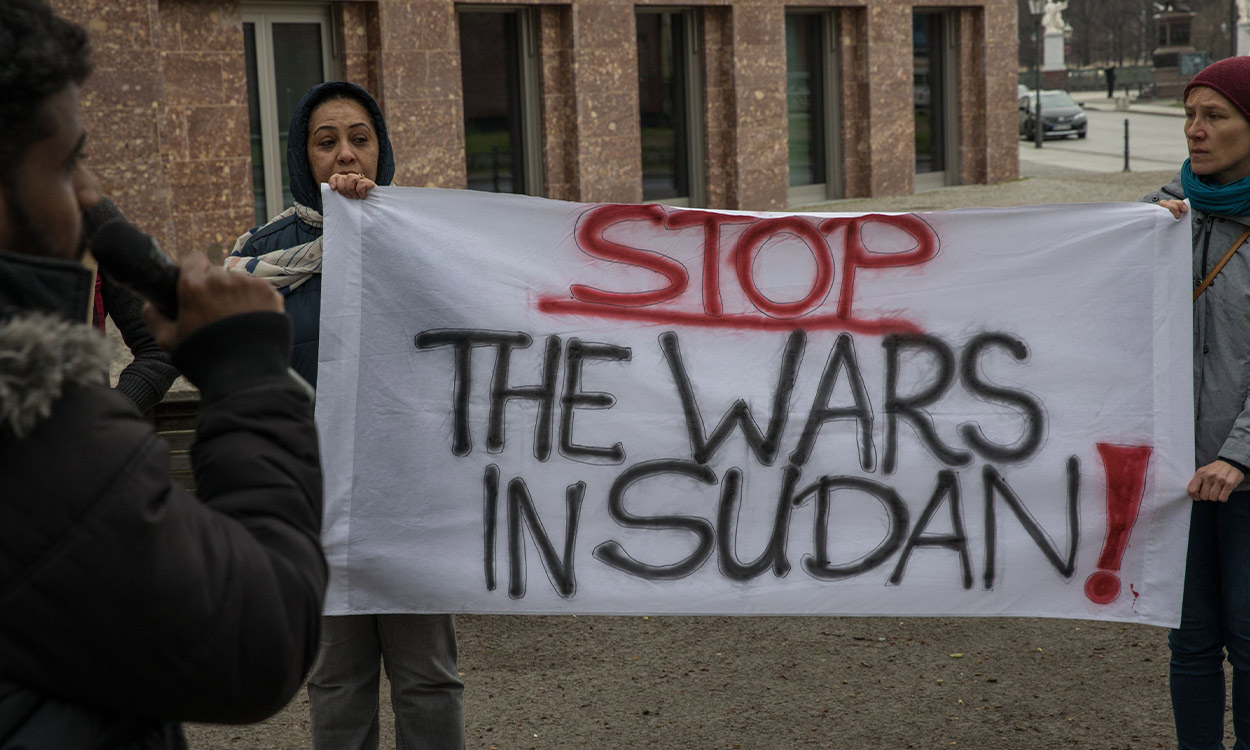
Numerous individuals, including civilians, have died in Sudan’s escalating skirmishes between the army and the key paramilitary Rapid Support Forces (RSF), in what appears to be a battle for power. A struggle between two strong competing military factions has broken out in Khartoum and other locations throughout Sudan, enveloping the city in combat for the first time and increasing the likelihood of a national civil war.
Witnesses reported hearing explosions, intensive gunfire, and fighter planes roaring overhead as buildings in the heavily populated northern and southern districts of Khartoum, Sudan’s capital, were shaken.
What triggered the violence in Sudan?
The paramilitary Rapid Support Forces (RSF) and the Sudanese army had been at odds for months before the two organizations joined forces in October 2021 to overthrow a civilian administration.
An international-backed strategy to start a new transition involving civilian parties was what finally resolved the conflict. On the fourth anniversary of the fall of long-reigning despot Omar al-Bashir by a popular revolt, a final agreement was scheduled to be signed earlier in April.
RSF sought to put off the integration into itself for ten years, while the Sudanese army suggested doing it in two years. Another issue between the two former Sovereign Council members is the army’s support for the handover of power to a civilian government.
The leader of the RSF, Mohamed Hamdan Dagalo, claims to have taken control of most of the government buildings in Khartoum.
On Saturday, soldiers loyal to General Abdel Fattah al-Burhan and the RSF, led by General Mohamed Hamdan Dagalo (also known as Hemedti), engaged in their first battle.
A lengthy conflict could obstruct efforts to move toward elections in Sudan
After a day of fierce fighting, the army reportedly struck a building in Omdurman, a city that borders the capital Khartoum, according to witnesses. Both the military and the RSF claimed control of crucial infrastructure in Khartoum, including the airport, where the battle lasted all night. Political factions are negotiating with the RSF and the military, which are fighting for power, to construct a transitional government after a military coup in 2021.
As tensions over the RSF’s military enlistment increased, fighting broke out. The disagreement over the timing of the democratic transition has delayed the signing of a pact with political parties that is supported by the international community.
The fighting took place during Ramadan, a sacred month for Muslims. A lengthy conflict could obstruct efforts to move toward elections and ignite broad unrest as Sudan struggles with economic collapse and ethnic conflict.
According to two corporate insiders quoted in a Reuters article, Sudan’s MTN telecommunications operator was told to statewide prohibit internet access by the government’s regulatory body for telecommunications.
A teenage Khartoum resident named Huda told Reuters that she and her family were terrified and that they hadn’t slept in 24 hours due to the noise and shaking of their home. We fear running out of food, water, and my diabetic father’s medication. “Everyone is lying,” she continued, “and there is so much misleading information. We are unsure of how or when this will end.
An architect who resides in Khartoum named Tagreed Abdin informed the news agency that there was a power outage and that people were attempting to save phone batteries. We can hear gunshots, shelling, and air strikes, she claimed.
After Bashir was removed from office, Western nations, particularly the United States, shifted their support to a transition to democratic elections. Following the coup, they withdrew their financial assistance before supporting the proposal for a new transition and a civilian government.
There have been calls for humanitarian ceasefires in Sudan and a resumption of negotiations from international parties
Saudi Arabia and the United Arab Emirates have also attempted to influence Sudanese events because they view Bashir’s ouster as a means of reducing Islamist influence and enhancing regional stability.
Gulf nations have sought to invest in a variety of industries, including Sudan’s tremendous potential in agriculture and ports along the Red Sea coast.
There have been calls for humanitarian ceasefires and a resumption of negotiations from international parties, but the combatants have not shown any signs of giving ground or pausing their hostilities.
The RSF has been labeled a rebel group by the army, which has asked for its dissolution. Burhan has been demonized as a criminal by Hemedti, who holds him responsible for the country’s devastation.
The RSF expanded into a force of at least 100,000 troops that had deployed across Khartoum and its neighboring cities, as well as in other regions, raising the specter of protracted conflict on top of a long-running economic crisis and existing, significant humanitarian needs. This is despite the fact that the Sudanese army has superior resources, including air power and an estimated 300,000 troops.






